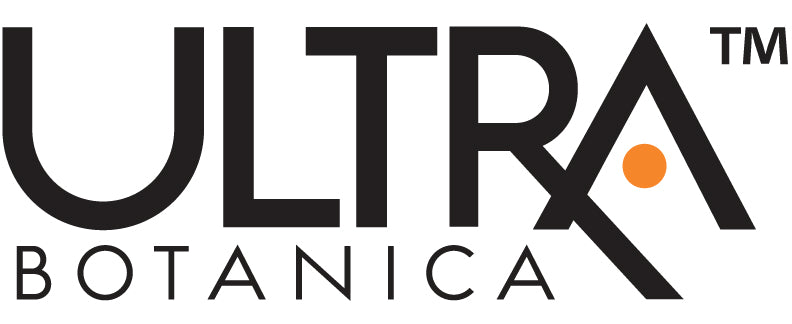We all know that feeling, you're trying to eat healthy, but it's hard to resist those salty, crunchy snacks. But what if those snacks were good for you?
Well, in the case of nuts, they actually are - Nuts: A Nutritional Powerhouse offers a delicious way to fuel your body with essential nutrient content. And fiber too.
And they won't cause disease like some of their ultra-processed cousins! For years, nuts had a bad reputation for being high in fat. But this is changing as people become more aware of the health benefits of healthy fats.
It turns out that the fats in nuts are mostly unsaturated, the "good" kind of fat that can benefit heart health and reduce cardiovascular risk factors.
Also, research indicates that nuts: a nutritional powerhouse may actually help you lose weight. This is probably due to nuts' ability to promote feelings of fullness and curb those pesky cravings. Talk about some nice health outcomes!
A Global History of Nuts: A Nutritional Powerhouse
Nuts have been a vital part of human diets for centuries, and different cultures have embraced them in various ways. Throughout history, nuts have played an important role in the diets and health of people all over the globe.
Nuts are rich sources of protein and amino acids, making them a valuable food choice around the world.
From the Mediterranean to the Amazon
From sustaining explorers to being featured in celebrations, nuts have always been a part of global cultures. Almonds have a long history rooted in the Mediterranean diet, with Spain being a major producer.
Their creamy texture makes them perfect for soups like Ajo Blanco and the rich Romesco Sauce of Catalonia.
Brazil nuts, a great source of selenium, are native to the Amazon rainforest.These giant trees can live for over 500 years, offering long-term sustenance to those in the region.

The Journey of Cashews and the Wisdom of Hazelnuts
While cashew nuts are associated with India and South Asia, they originated in South America. They were brought to India and Africa by Portuguese colonists. In India, cashews are popular in everything from sweets and curries to Sang Choy Bow.
Hazelnuts symbolize wisdom and fertility in many cultures. Their origin can be traced to Asia Minor, with the nut spreading to countries like Turkey and Italy. Turkish celebrations include the dish Bafra (raisin and hazelnut rolls), while in Italy the delightful Torta Nocciola (hazelnut cake), tempts taste buds everywhere.
The Australian Delight and the American Staple
Macadamia nuts are native to Australia. Aborigines relied on these nuts as a source of essential nutrients and energy during their travels. They later became commercially popular in Hawaii, finding their way into everything from shortbread to macadamia crusted fish.
Pecans are native to America. They've been a part of the diet in America since the 1500s and are now an American icon in Kanuchi (Cherokee pureed nut soup), and pecan pie.
The Middle Eastern Delicacy and Ancient Staple
Pistachios, enjoyed by royalty in the past, originated in the Middle East and have gained popularity in cuisines globally. Italians embrace them in cookies, gelato, and even as a pizza topping.
Finally, walnuts are amongst the oldest known tree nuts, dating back to 7,000 BC. They journeyed from Persia to become popular globally, enjoyed in dishes such as the Persian Fesenjan stew, the Italian walnut sauce for pasta, and Greek walnut cake.

The Nutritional Benefits of Nuts
This journey through the history of nut consumption showcases their significance in global cuisines. But eating nuts by themselves also boasts a myriad of health benefits, making them a true nutritional powerhouse. Let's delve into the specific beneficial effects they offer.
Macronutrient Profile
As a group, nuts provide a balanced mix of macronutrients, including protein, fiber, and heart-healthy fats. They make a great low-carb snacking option, plus they are incredibly versatile in many recipes.
Research suggests that consuming a daily handful of unsalted nuts can have a positive impact on cardiovascular health.
This is likely because nuts contain monounsaturated and polyunsaturated fatty acids, which may help lower "bad" cholesterol (LDL) and triglycerides.
Replacing saturated fatty acids with unsaturated fatty acids is a key step towards improving your cholesterol levels and promoting heart health.
Vitamins and Minerals
Nuts: A nutritional powerhouse also pack a punch when it comes to vitamins and minerals. They are a good source of Vitamin E, which acts as an antioxidant that protects cells from damage.
A study found that consuming walnuts significantly reduces oxidative stress compared to a control meal. Many common nuts offer essential minerals like magnesium, potassium, copper, and selenium, which play crucial roles in various bodily functions.
Incorporating a variety of nuts into your diet can contribute to your daily intake of these essential nutrients.

Unique Nutritional Value of Different Nuts
- Almonds. Rich in Vitamin E and monosaturated fats. Supports weight management and heart health. Almonds are also a good source of fiber and protein.
- Walnuts. High in Omega-3 fatty acids that support brain function, reduce inflammation, and protect against heart disease. Walnuts also contain antioxidants and may help lower cholesterol levels.
- Pistachios. A good source of fiber, antioxidants, and phenolic compounds. May improve good cholesterol (HDL) levels, and they've been linked to lowered blood pressure (both systolic and diastolic). They've also been linked to weight loss. Pistachios are also a good source of protein and potassium.
- Brazil Nuts. The highest natural source of selenium, crucial for thyroid function, healthy prostate function, a strong immune system, and cell health. Selenium is considered a trace mineral, so two or three Brazil nuts a day is enough to get the full benefit. Brazil nuts are also a good source of healthy fats and fiber.
- Pecans. Contain more than 19 vitamins and minerals including vitamin A, vitamin E, folic acid, calcium, magnesium, phosphorus, potassium and zinc. They're also rich in omega-3 fatty acids and are an excellent source of phenolic antioxidants.
- Macadamia. Contain the highest percentage of monounsaturated fats of any known food source. An excellent source of calcium, magnesium, phosphorus, and potassium, which support teeth and bone health.
- Cashews. Rich in protein, healthy fats, and antioxidants such as polyphenols. Cashews are low in carbohydrates compared to many other common snacks. This limits their impact on blood sugar, making them a good choice for people with type 2 diabetes.
- Hazelnuts. Hazelnuts are a rich source of protein, vitamin E, folate, B vitamins, arginine, and healthy fats... earning them the FDA heart healthy seal of approval.
Antioxidants and Anti-Inflammatory Properties
Many plant-based foods are rich in phytonutrients. Luckily, nuts: a nutritional powerhouse is loaded with them. Nuts like pecans and pistachios are full of phenolic compounds.
These phytonutrients have strong antioxidant and anti-inflammatory properties that may help protect against chronic diseases. Studies also show that nut intake, particularly walnuts, reduces inflammatory markers like C-reactive protein.
Chronic inflammation is linked to several diseases, so incorporating anti-inflammatory foods like nuts into your diet can be beneficial.

Weight Management
Although they're calorie-dense, studies suggest that regular nut consumption as part of a healthy diet does not cause weight gain. Some clinical studies indicate that people even experienced weight loss when including nuts in their diets.
Research also shows that your body doesn't absorb all the calories from nuts. It seems a portion of the fat remains trapped within the nuts' fibrous walls, ultimately lowering calorie intake.
The protein and fiber content in nuts contribute to feelings of satiety, helping curb overeating and support weight management efforts.
For instance, although the nutritional information might suggest a serving of almonds contains 160-170 calories, your body absorbs only around 129.
So, replacing unhealthy snacks and processed foods with nuts could make a big difference in your overall calorie intake. Consider adding a handful of nuts as a healthy snack option.
Managing Diabetes, Metabolic Syndrome, and Blood Sugar
Another misconception is that those with diabetes or metabolic syndrome should avoid nuts because they're high in fat and calories. Nuts: a nutritional powerhouse are low in carbohydrates, making them a good choice for managing blood sugar.
Plus, clinical studies have found a connection between nut intake and improved blood sugar control, which is essential for managing insulin resistance and reducing the risk of developing type 2 diabetes.
One study even observed a 9% average decrease in fasting blood sugar amongst those who ate pistachios twice a day over 12 weeks.
Nut Consumption: Practical Tips
Ready to embrace all the goodness of nuts? Here's what you need to know about nut consumption as part of a healthy and balanced diet.
Portion Control
While incredibly beneficial, nuts are still energy dense. So, portion control is important, especially if you're trying to manage your weight. Aim for about ¼ cup per serving. Think of it as a small handful.
This way, you get all the health benefits without overdoing the calories. And remember, it's not nearly as hard to overdo nuts as it is, say, potato chips, because nuts are far more satiating. Take comfort in that.

Versatility in Consumption
Luckily, nuts are versatile. You can sprinkle them on salads, yogurt, and cereal. Or use them in homemade trail mix, granola, or as a crunchy addition to stir-fries. Nuts also work well in many baking recipes, adding a satisfying crunch and nutty flavor.
And a point not to be missed... Nuts are travel-friendly, both for road trips and TSA/flights. They're also perfect to keep in your desk at work in case you get a snack attack during the day. No prep needed. 😊
Nut butters are a creamy, convenient alternative and can be used as spreads, dips, as a sauce ingredient, and a perfect accompaniment to fresh apples. Most nut butters contain added sugars and oils, so reading labels carefully is a must. Opt for natural nut butters without added ingredients.
Storage and Freshness
Toasting nuts enhances their flavor. To avoid burning, watch closely as they toast in a preheated oven at 350° for 5-8 minutes.
To maintain freshness, keep your nuts in airtight containers in a freezer, which helps to prevent oxidation and preserve their flavor. Food with fat content tends to go rancid fairly quickly. Your freezer will keep nuts fresh for longer.
Otherwise, buy smaller quantities more frequently, especially if you don't eat nuts regularly. But after reading this, maybe you'll be motivated to start enjoying them regularly.
Nuts deserve a great place at holiday festivals and potlucks and provide a healthy low-carb choice for those who are trying to watch their carbs.
Plus, they can curb your appetite so you're less inclined to overeat. Why not set some out with the appetizers?
Conclusion
From boosting heart health and aiding in weight management to providing essential vitamins and minerals, there's no doubt about the amazing power packed into these small but mighty treats.
Nuts: A Nutritional Powerhouse deserve a spot in any healthy and balanced diet. Embrace their crunchy goodness and enjoy the delicious path toward a healthier lifestyle.

Frequently Asked Questions
Can nuts help you lose weight?
Nuts: A Nutritional Powerhouse may actually help you lose weight! This is probably due to nuts' ability to promote feelings of fullness and curb those pesky cravings.
What nutrients do nuts contain?
Nuts are rich in essential nutrients, including protein, making them valuable plant-based protein sources. They contain omega-3 fatty acids which support heart and brain health, as well as amino acids that help build and repair tissues.
Nuts also provide fiber, B vitamins, vitamin E, magnesium, potassium, zinc, calcium, and iron. This makes nut consumption a great wellness strategy when included in a balanced diet.
How do nuts help with heart health and weight management?
Nuts: A Nutritional Powerhouse provides healthy fats, such as omega-3 fatty acids, which reduces bad cholesterol and lowers inflammation, supporting cardiovascular function.
They’re also rich in fiber and protein, which promotes satiety, aiding weight management by reducing overall calorie intake.
Will nuts make you gain weight?
Nut consumption in moderation is unlikely to cause weight gain and may promote weight control. Their high fiber, protein, and healthy fat content helps promote fullness, which can reduce overall calorie intake.





Share:
15 Tips to Avoid Weight Gain Over the Holidays: Stay Lean!
Soda Health Risks: The Hidden Dangers in Your Fizzy Drinks